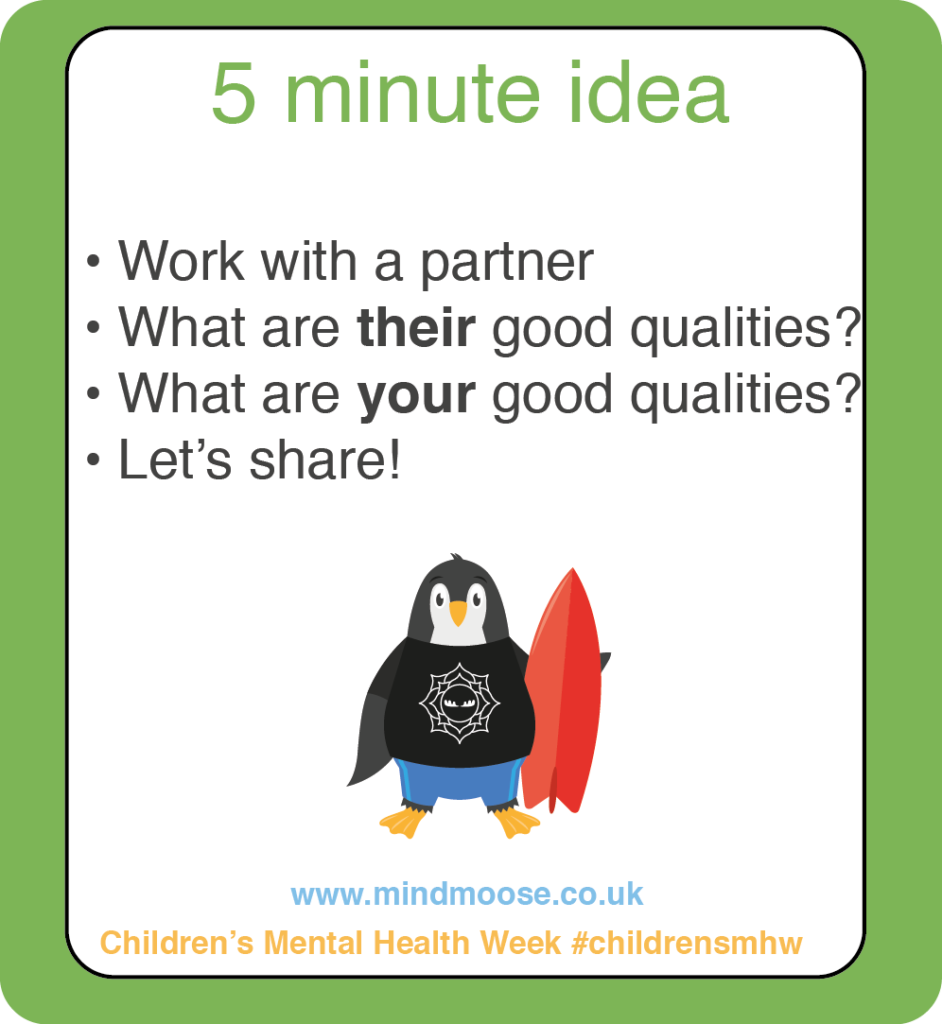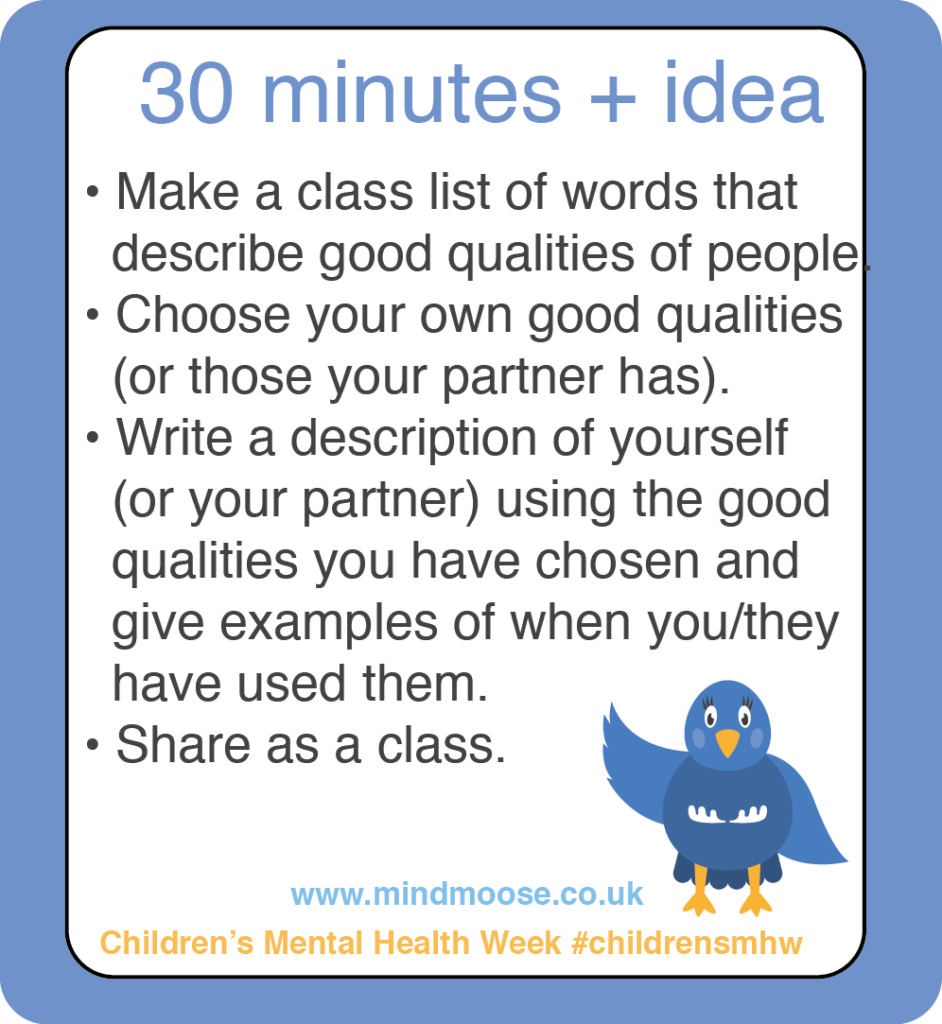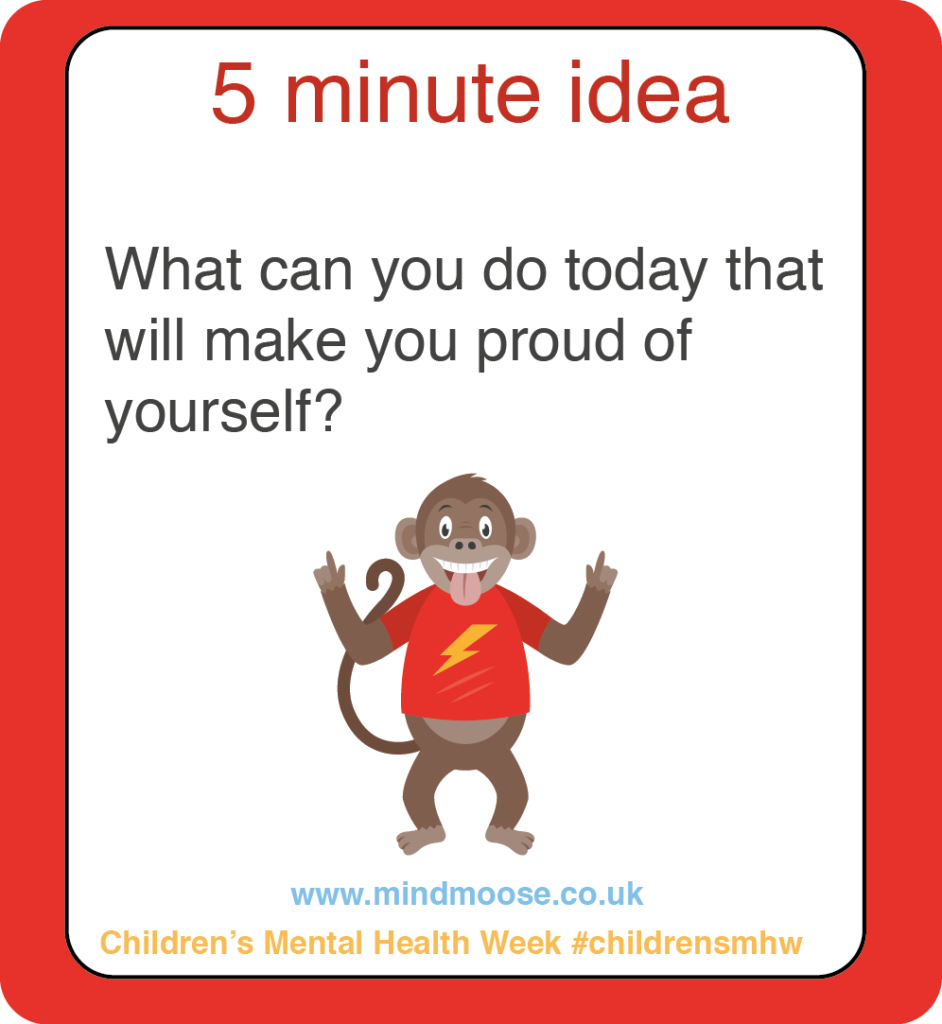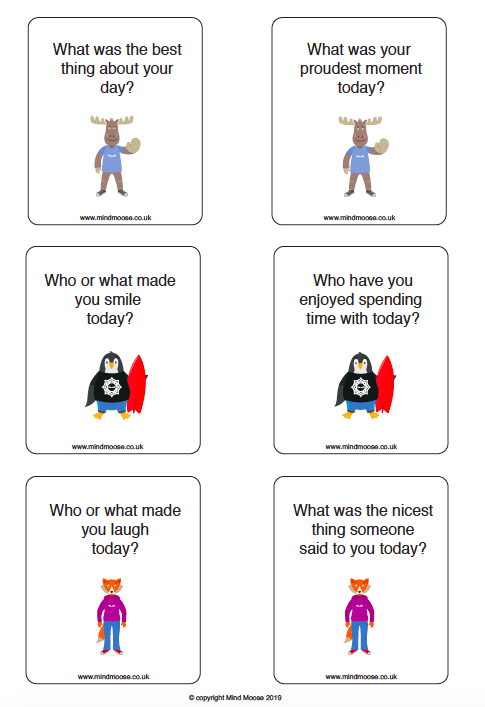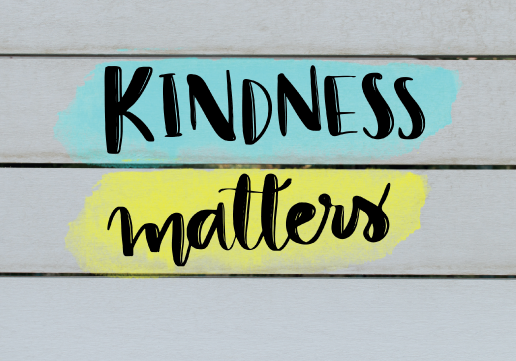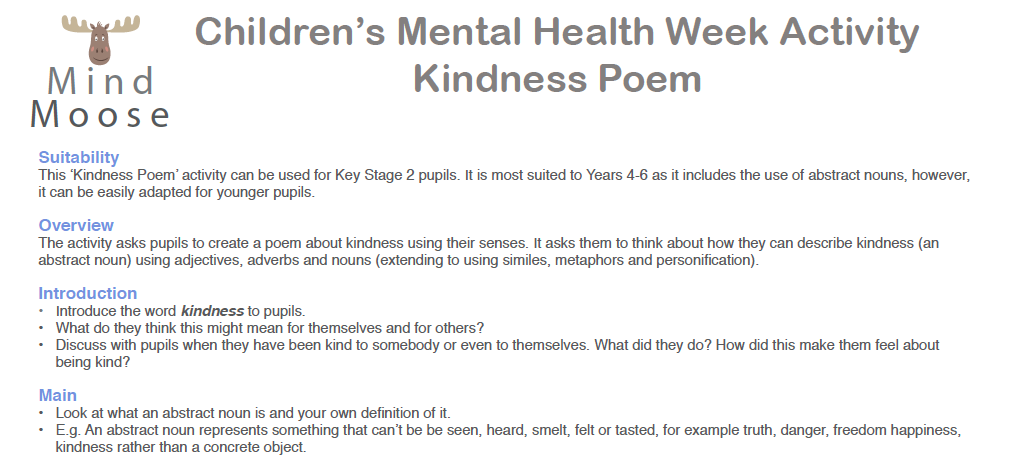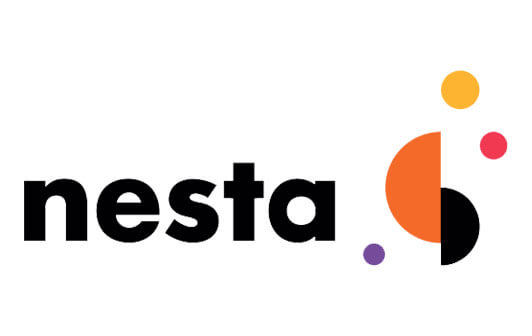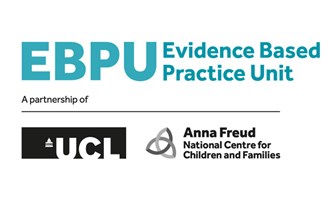Over the past few years, Children’s Mental Health week has become increasingly popular. Along with the official ones, we have produced our own resources for the theme that you can use with your pupils – during the week, or at any time!
They are all free for you to download and written by our team of expert teachers.
‘Being Ourselves’ Resources
The theme of the 2018 year’s Children’s Mental Health Week was, ‘Being Ourselves, which encouraged children to celebrate their uniqueness.
One of the easiest and best ways to do this, is to encourage them to think about their ‘good qualities’. Here are a couple of easy activities that can get you started. They are really easy to fit into the school day and a warm glow afterwards is pretty much guaranteed!
As always, there are superb resources at Place2Be with more information about why this theme is so important, assemblies and more lesson ideas.
Children’s Mental Health Week ‘Kindness’ Resources
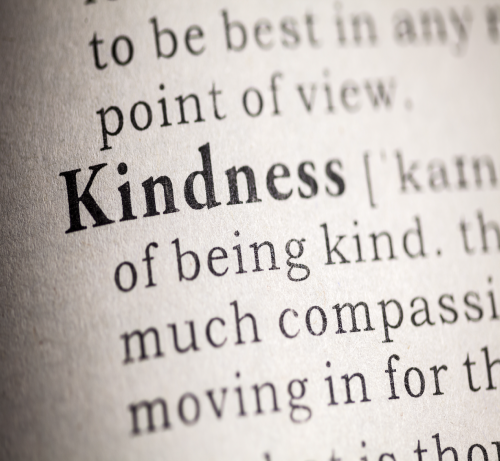 2017 had a theme of ‘kindness’ which is one of our favourites. We created 3 free lesson activities for teachers to use in class with their pupils to support their wellbeing and encourage kindness at any time of the year.
2017 had a theme of ‘kindness’ which is one of our favourites. We created 3 free lesson activities for teachers to use in class with their pupils to support their wellbeing and encourage kindness at any time of the year.
The first activity is a Kindness Poem; An activity designed to fit easily into a KS2 English lesson.
The second activity is a ‘Small Acts of Kindness Activity’ where children think of and create kindness cards featuring small acts of kindness they can perform throughout the school day’.
Lastly, the third activity is ‘Kindness Quotes and Slogans‘; An activity designed to improve pupils’ creativity and literacy skills and get them thinking about what kindness is.
